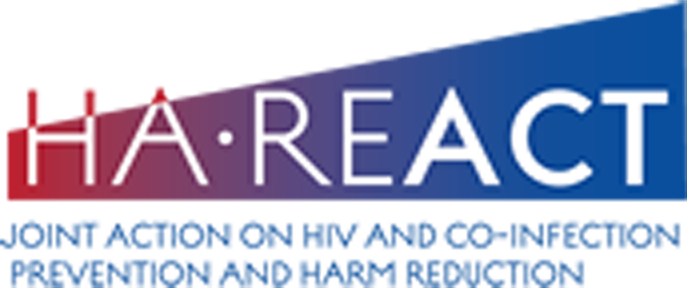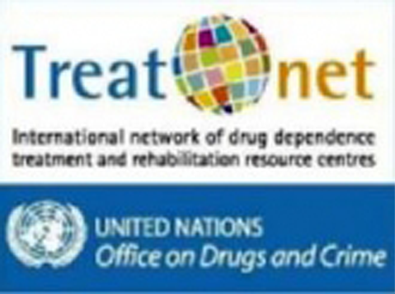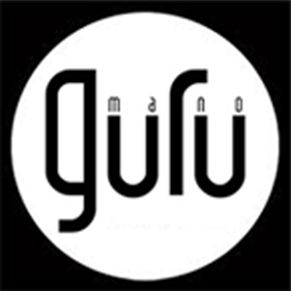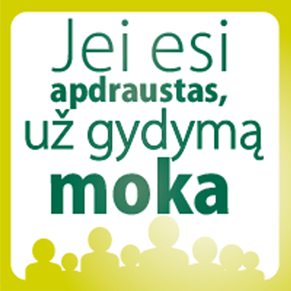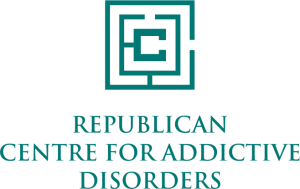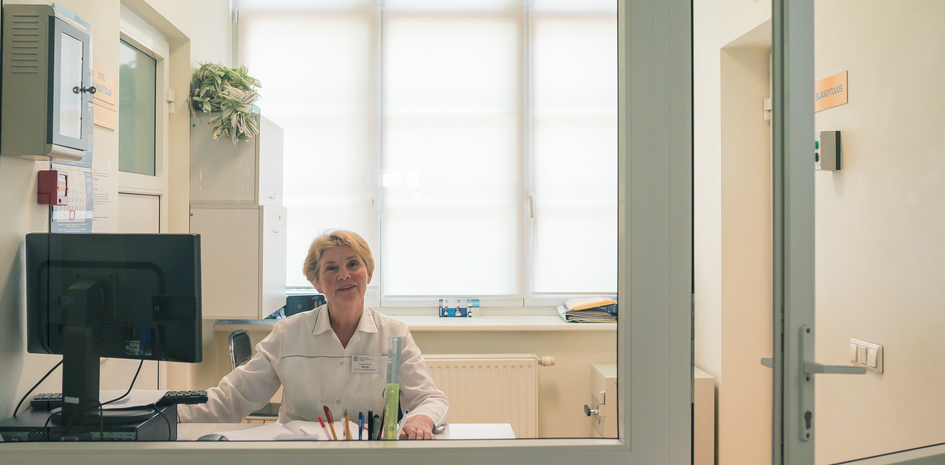
The Republican Center for Addiction Disorders provides a wide range of treatment and rehabilitation services for drug addiction. To receive treatment at the RCAD, you need a referral from your family doctor or psychiatrist. However, you can also receive treatment anonymously, in which case the services are paid.
To start treatment, you need to register by calling the registration office of your chosen branch:
- Vilnius branch, phone number: +370 5 213 7808
- Kaunas branch, phone number: +370 37 33 32 55
- Klaipėda branch, phone number: +370 46 41 50 25
- Šiauliai branch, phone number: +370 41 45 56 44
- Panevėžys branch, phone number: +370 45 58 26 73
When you arrive, you need to have:
- An identity document with a photo.
- A referral from your family doctor or psychiatrist, indicating that you are seeking a consultation with a psychiatrist at the Republican Center for Addiction Disorders. Unless you choose to receive paid services anonymously, in which case a referral is not required.
- During registration, you may be asked to have a medical certificate confirming that you are not suffering from pulmonary tuberculosis.
- If you have coexisting illnesses and are taking prescribed medications, you must have a medical certificate confirming your health condition and carry the medications with you.
First, you need to register for a consultation with a psychiatrist who will determine the further treatment plan.
The RCAD provides outpatient and inpatient services.
- Opioid overdose prevention – consultations with a doctor for people using opioids and their relatives, where the doctor provides information about the risk of opioid overdose and issues the opioid antidote medication naloxone. During the consultation, you will learn about the possibilities of opioid addiction treatment, symptoms of opioid overdose, principles of first aid in case of opioid overdose, the mechanism of action and usage of naloxone, and receive information on safe syringe use. This service is provided free of charge. It is available at the Vilnius, Kaunas, Klaipėda, and Panevėžys branches.
- Opioid maintenance treatment – one of the most effective evidence-based treatment methods. The goal of providing maintenance treatment with opioid medications is to enable individuals dependent on opioids to reduce or cease injecting drug use, reduce the risk of relapse, and promote physical and mental well-being, social adaptation, and integration. Patients can choose maintenance treatment with methadone or buprenorphine/naloxone.
- Opioid Maintenance Treatment with Methadone – if you have a referral, the treatment is free – fully compensated by the Lithuanian state. It is available at the Vilnius, Kaunas, Klaipėda, Šiauliai, and Panevėžys branches.
- Opioid Maintenance Treatment with Buprenorphine/Naloxone – if you have a referral, the treatment is free – covered by the state, and the patient only pays for the acquisition of the medication (the medication is reimbursed), which can be purchased at a pharmacy. The therapeutic dose of buprenorphine-containing drugs is determined by the doctor, and the patient must take the medications at home according to the doctor’s prescription. This service is available at the Vilnius, Kaunas, Klaipėda, and Panevėžys branches.
- Case management and social counseling – Following the recommendations of the World Health Organization, medication-based opioid addiction treatment is combined with the case management method. A specialist (case manager) who works individually with the patient provides regular consultations, assists in solving employment, social security, and other practical issues, and aims to support and enhance the patient’s motivation to recover.
This service is part of supportive treatment with opioid medications (methadone or buprenorphine/naloxone) and is provided free of charge. The service is available at the Vilnius, Kaunas, Klaipėda, and Panevėžys branches.
- Relapse prevention – upon the patient’s request, the doctor, after assessing indications and contraindications, selects a medication and provides information about its effects. The patient purchases the medication from a pharmacy with a prescription. Together with the patient, the doctor develops a supportive treatment plan and determines a schedule for preventive visits to monitor the condition, adjust the maintenance medication dosage, and prescribe medication if necessary.
The service is available at the Vilnius, Kaunas, Klaipėda, and Panevėžys branches.
- Outpatient Minnesota Model – the treatment lasts for three months during which the patient regularly attends group sessions and individual consultations with a doctor, psychologist, social worker, drama therapist, and, if indicated, an occupational therapist, based on an individualized treatment plan. Patients learn to analyze their emotions, adjust their thinking, and strengthen positive behavior. During treatment, a strong motivation to live soberly is developed. During the treatment period, the patient’s family members are also invited to attend psychologist consultations. If needed, at the beginning or during treatment, the doctor may prescribe medication to stabilize the patient’s psychosomatic condition.
This service is available only on a paid basis. The service is available at the Vilnius branch (Savanorių pr. 74).
- Mental Health Day Centre – an outpatient addiction treatment program that lasts up to 30 days. During the day hospital visits, the individual participates in group sessions and individual consultations led by a psychiatrist, social worker, psychologist, occupational therapist, and other specialists. The sessions and consultations take place every working day and last for at least 4 hours. The combination of medication treatment and counseling helps stabilize the patient’s condition, gain self-awareness of their emotions and share them, encourage positive behavioral changes, and motivate patients to continue further treatment or prevent relapse.
The service is available at the Vilnius branch (Savanorių pr. 74).
- Drug withdrawal treatment – long-term use of psychoactive substances leads to physical dependence. Suddenly stopping their use can result in symptoms collectively known as withdrawal syndrome. These symptoms vary from individual to individual (from mild to severe, but opioid withdrawal is not life-threatening). Therefore, in certain cases, the doctor may recommend, or the patient may choose to alleviate withdrawal symptoms by using medication prescribed by the doctor.
Drug withdrawal treatment lasts up to 21 days. During the treatment, the doctor regularly prescribes and adjusts medication, while the nursing staff monitors the patient’s health around the clock. Comprehensive treatment is ensured through sessions led by specialists. The center’s psychologists and social workers organize group and individual consultations aimed at informing patients about addiction as a mental and behavioral disorder, discussing treatment and rehabilitation possibilities, and motivating recovery. It is important to note that opioid withdrawal reduces tolerance to these substances, significantly increasing the risk of fatal overdose after the intervention. Therefore, it is crucial to ensure continuous addiction treatment after opioid withdrawal.
The service is available at the Vilnius, Kaunas, Klaipėda, Šiauliai, and Panevėžys branches.
- Inpatient Minnesota model – the program is based on measures that incorporate the Twelve Step therapy and introduction to self-help groups. During treatment, patients learn to analyze their emotions, adjust their thinking, and strengthen positive behavior. A daily schedule is strictly adhered to in the Unit. Patients attend individual and group consultations with specialists: psychologists provide psycho-corrective counseling, group psychotherapy, and other therapeutic sessions, social workers deliver lectures, patients watch and discuss selected films, and attend classes to learn the basics of the Twelve Step program. After treatment, there is an opportunity to continue recovery by using medications that reduce the risk of relapse and through outpatient consultations. The treatment lasts for 28 days.
The service is provided at the branches in Vilnius, Kaunas, and Klaipėda.
Upon arrival to treatment at the Republican Centre for Addictive Disorders, we kindly ask you to:
- Have a chest x-ray certificate (it must be less than 12 months old), if you come for treatment in the Drug Withdrawal Unit.
- Abstain from substance use for a minimum of 1 day if you come for treatment in Drug Withdrawal Unit.
- Abstain from substance use for a minimum of 10 days if you come for treatment in Minnesota Unit.

